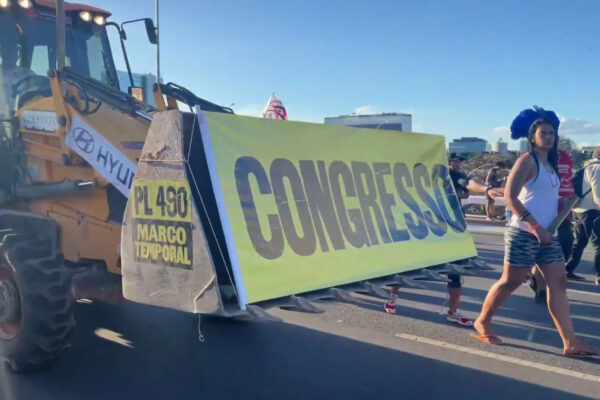An Enron Corp. project is in line to get a $125 million loan from the
Inter-American Development Bank to expand a Bolivian gas pipeline, even as
the bankrupt company is shunned by other taxpayer-funded lenders.
Enron’s bankruptcy, the largest in U.S. history, does “raise a red flag,
but it’s not something that is going to stop this project,” said Daniel
Drosdoff, a spokesman for the bank, the largest development lender to Latin
America.
The Houston-based company owns one-quarter of Bolivia’s Transredes SA,
which wants to undertake a $434 million pipeline expansion to ship more gas
to energy-starved Brazil. Royal Dutch Petroleum Co., pension funds and
private investors own the rest of the company. Enron was once one of the
heaviest users of public support for its gas and electricity projects in
countries from Argentina to India, racking up $6 billion in loans and
guarantees from lenders such as the World Bank and U.S. Overseas Private
Investment Corp. during the past decade.
Most of that support has evaporated since the company filed for bankruptcy
on Dec. 2, setting off investigations by more than a dozen congressional
committees, the Securities and Exchange Commission and the U.S. Department
of Justice.
OPIC, formerly Enron’s staunchest advocate, canceled a Brazilian
Enron-backed project and has asked the Justice Department to find out if it
could sue the company to get out of insurance it provided. OPIC lent or
guaranteed $2 billion for Enron during the past decade.
The World Bank’s private industry arm, the International Finance Corp.,
isn’t considering any further aid for Enron, said spokeswoman Ludwina Joseph.
‘Outrageous’
Jon Sohn an activist at the environmental group Friends of the Earth,
called it “outrageous” that more public money is going to Enron now.
Enron said the project will build value for its creditors.
More than half the funds for the project, $250 million, are scheduled to
come from the IDB and its fellow lender, the Andean Development Corp., a
Venezuela-based government-funded lender, according to Enron.
An Enron spokesman said the Bolivian gas pipeline is one of three
construction projects the company has proposed. The other two are in the
U.S., said John Ambler.
Enron’s bankruptcy shouldn’t stop any of those projects, he said.
“Completion of ongoing projects, including expansions, are helpful” for
creditors, Ambler said.
The IDB, whose largest shareholder is the U.S. government, posted a
preliminary description of its funding proposal on its Web site a month
ago. Within a week, the environmental assessment is to be published, and
the bank’s board could approve the loan within months.
‘Comfort Level’
“A year ago, Enron’s involvement would have meant an extra comfort level,”
Drosdoff said. “Now there’s a caution that goes up.”
Enron has teamed up in similar projects around the globe during the past
decade. It used those public guarantees to help arrange financing for gas
pipelines in Argentina, power plants in China and electricity transmission
in Macedonia.
Enron used its ties to the U.S. government and lenders such as the World
Bank to sway foreign governments in its favor, critics say. In 1995,
Mozambique complained about U.S. threats to cut off aid if it didn’t give
Enron the rights to a gas field.
And OPIC documents show that President George W. Bush’s administration
directed a drive to help Enron resolve a dispute in India, including pleas
from Vice President Dick Cheney and Bush’s chief economic adviser, Lawrence
Lindsey.
OPIC President Peter Watson helped lead that drive, those documents show.
Enron, General Electric Co. and Bechtel Group Inc. filed a joint claim with
OPIC for $200 million in compensation in December after shutting their
Dabhol power plant in India because the plant’s sole customer stopped
paying its bills.
Ill Will
Enron blames its woes in India on ill will among India authorities, rather
than the company’s financial weakness.
Those problems haven’t discouraged the Inter-American Development Bank,
which is now doing its due diligence on the Bolivian pipeline.
“Part of our due diligence is to ask whether there would be any downside to
Enron involvement,” said Robert Montgomery, who is coordinating the
environmental assessment of the pipeline project.
The IDB said it plans to syndicate $50 million of the $125 loan to private
banks.
Jean-Marc Aboussouan, the project manager, said the plan “is not something
where our financing will depend on the viability of Enron.”













